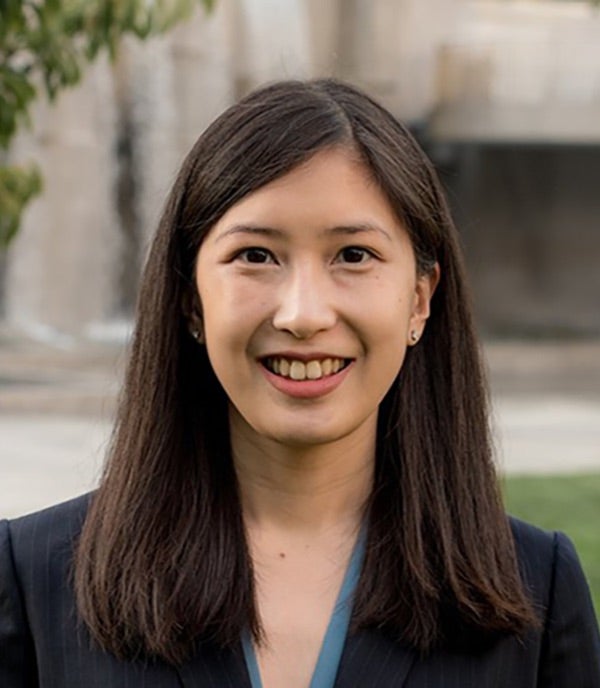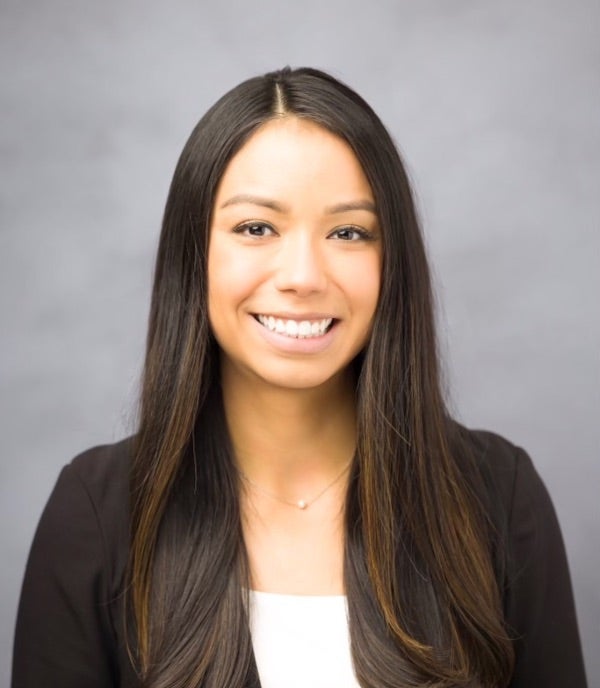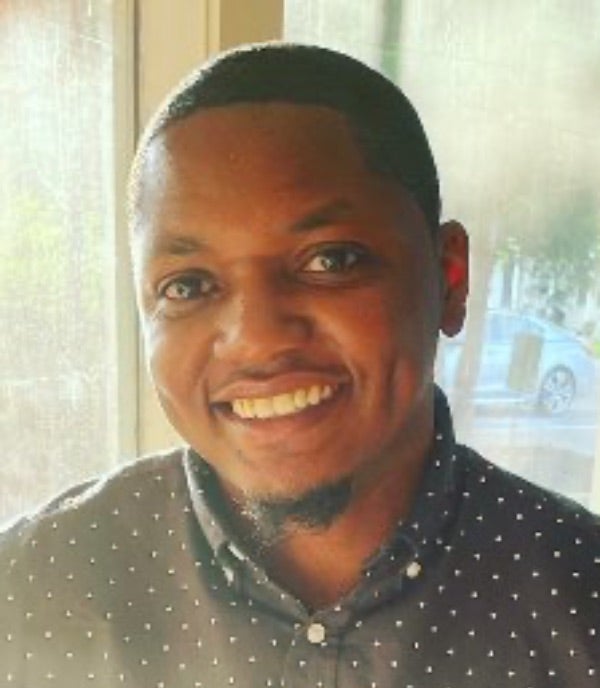About the pilot projects Heading link
The CHECA-based RCMAR Scientist Program consists of cohorts of promising early career faculty (including non-tenure track) from diverse backgrounds, including those from underrepresented groups, who are interested in pursuing rigorous behavioral and social science research careers in aging, health disparities, equity, and Alzheimer’s Disease and Alzheimer’s Disease Related Dementia (AD/ADRD). CHECA Scientists are in an early-career stage, defined as pre-tenure and/or not having previously competed successfully as Principal Investigator (PI) for a substantial NIH independent research award (e.g., R01) or equivalent awards.
The Health and Healthcare of Older Cohabiting Caregivers of People with Diagnosed Alzheimer’s Disease (AD) and Alzheimer’s-Disease-Related Dementias (ADRD)

Jennifer H. Kwok, PhD, is an assistant professor of health policy and administration at the University of Illinois at Chicago School of Public Health. She received her PhD in Economics from the University of California, Berkeley, and was an NBER Post-Doctoral Fellow in Aging and Health Research during the 2019-2020 academic year.
Dr. Kwok’s research focuses on the roles of providers in healthcare markets, especially in specialties with ongoing provider-patient relationships. She is also interested in household health insurance and medical care decisions; physician behavior; drug innovation and use; and effects of government policies on healthcare disparities.
Preserving function and preventing cognitive decline: Culturally adapting the IPROACTIF (Integrated PRimary care and Occupational therapy for Aging and Chronic disease Treatment for Independence and Functioning).

Dalmina Arias, OTD, OTR/L, is a clinical assistant professor in the Department of Occupational Therapy in the College of Applied Health Sciences. Dr. Arias has a comprehensive background working with the aging population as an occupational therapist in inpatient, outpatient, and home settings.
As an educator, Dr. Arias imparts knowledge on foundational occupational therapy concepts, payment systems, policy, advocacy, access, and program development. Committed to addressing health disparities, particularly among minoritized individuals from diverse racial/ethnic backgrounds, she engages in research endeavors that focus on evidence-informed health promotion interventions that employ culturally relevant and strengths-based approaches, thereby enhancing the delivery of healthcare services.
As a child of immigrant parents from Mexico, Dr. Arias draws inspiration from witnessing their challenges in managing their health and navigating the healthcare system while living and aging in the United States (US). This personal connection fuels her profound interest in researching racial, ethnic, and cultural influences on the experiences and outcomes of aging minoritized individuals and their families. Grounded in her experiences supporting aging family members, she intimately understands the challenges the Latinx community faces as they age in the US.
Dr. Arias’ career goals center on studying culturally and contextually relevant methods to preserve function and prevent cognitive decline among aging minoritized older adults. She envisions creating evidence-informed interventions that provide pertinent solutions for all health disparities among Latinx older adults and their families. Driven by a commitment to fostering equitable and accessible healthcare solutions, Dr. Arias strives to make a lasting impact on the well-being of minoritized communities through her research and interventions.
Examining the Role of Transnationalism in Caregiving for Nigerian Immigrants with Dementia

Kelechi Ibe-Lamberts, PhD, is a clinical associate professor of community health sciences at the UIC School of Public Health. He teaches and researches health behaviors, health disparities and health outcomes among culturally diverse populations. His research work specifically involves matters related to refugee/immigrant health and the development of transnational ties among Black immigrants.
He identifies as a 1.5 generation Transnational Nigerian American. Born in Lagos, Nigeria, he immigrated to the United States at the age of 8, where he grew up in Chicago, Illinois. He received his undergraduate and doctorate degrees in community health from the University of Illinois at Urbana-Champaign. He continued his postdoctoral training at the University of Florida until 2018.
Additionally, he serves as the Chair for the APHA Caucus on Refugee and Immigrant Health and also hosts a podcast titled “My Black is Transnational”. A husband and father of three, he is also a very passionate Chicago sports fan.